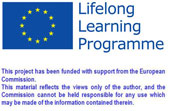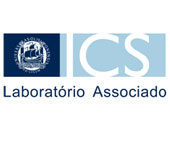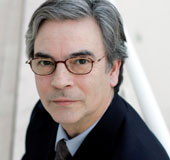| CONTACT PERSON’S EXPERIENCE AND EXPERTISE |
José Luís Cardoso
Research professor and vice-director of ICS-UL. He has published several books and journal articles on the history of Portuguese economic thought in a comparative perspective. His research interests also include the economic history and methodology of economics. He is the co-founder and co-editor of the European Journal of the History of Economic Thought and of the e-journal of Portuguese History. He is a fellow of the Academy of Sciences of Lisbon and member of several international scientifc associations. He has contributed to several collective volumes dealing with comparative analysis of European experiences of economic thought. His recent publications more related to the project are:
- Cardoso, José Luís. F. S. Constâncio et la réception critique de J.-B. Say au Portugal. In André Tirain (dir.) Jean-Baptiste Say: Influences, critiques et postérité. Paris: Éditions Classiques Garnier, 2010, 69-92.
- Cardoso, José Luís. F. Solano Constâncio on political economy: a “science of proportions”. History of European Ideas, 2009, 35: 227-235.
- Cardoso, José Luís. Free trade, political economy and the birth of a new economic nation: Brazil 1808-1810. Revista de Historia Económica – Journal of Iberian and Latin American Economic History, 2009, 27:2, 183-204.
- Cardoso, José Luís and Carlos Bastien. Uses and abuses of political economy in Portuguese parliamentary debates (1850-1910). History of Economic Ideas, 2009, 17:3, 53-69.
- Cardoso, José Luís. Learning with Bob Coats’s Legacy. Journal of the History of Economic Thought, 2009, 31:3, 375-9.
- Cardoso, José Luís and António Almodovar. Political Economy in Portuguese Parliamentary Debates (1820-1910). In: Augello, Massimo and Marco Guidi (eds.), Economists in Parliament in the Liberal Age (1848-1920). Aldershot: Ashgate, 2005, 27-47.
- Cardoso, José Luís. The international diffusion of economic thought. In: Samuels, Warren, Biddle, Jeff and Davis, John (eds.), A Companion to the History of Economic Thought. Oxford and New York: Blackwell, 2003, 622-633.
- Cardoso, José Luís and John Reeder. Adam Smith in the Spanish and Portuguese Speaking World. In: Tribe, Keith and Mizuta, Hiroshi (eds.), A Critical Bibliography of Adam Smith. London: Pickering & Chatto, 2002.
- Cardoso, José Luís. Italian influences in Portuguese economic thought (1750-1950). In: Asso, Pier Francesco (ed), From Economists to Economists. The International Spread of Italian Economic Thought (1750-1950). Firenze: Edizioni Polistampa, 2001, 209-226.
- Cardoso, José Luís and António Almodovar. From learned societies to professional associations. The establishment of the economist profession in Portugal. In: Augello, Massimo and Guidi, Marco (eds.), The Spread of Political Economy and the Professionalisation of Economists. Economic Societies in Europe, America and Japan in the Nineteenth Century. London and New York: Routledge, 2001, 126-137.
- Cardoso, José Luís. French traditions and economic thought in Portugal (1850-1910). In: Dockès, Pierre et allii (eds.), Les Traditions Économiques Françaises, 1848-1939. Paris: CNRS Editions, 2000, 939-953.
- Cardoso, José Luís and Ernest Lluch. Las teorías económicas contempladas a través de una óptica nacional. In: Quintana, Enrique Fuentes (ed.), Economia y Economistas Españoles. Barcelona: Galaxia Gutemberg, 1999, Vol.1, 477-484.
- Cardoso, José Luís and António Almodovar.The teaching of political economy in Portugal in the nineteenth and early twentieth centuries. In: Massimo Augello and Marco Guidi (eds.), The Economic Reader: Textbooks and Manuals and the dissemination of the economic sciences during the 19th and Early 20th centuries. London and New York: Routledge
|




